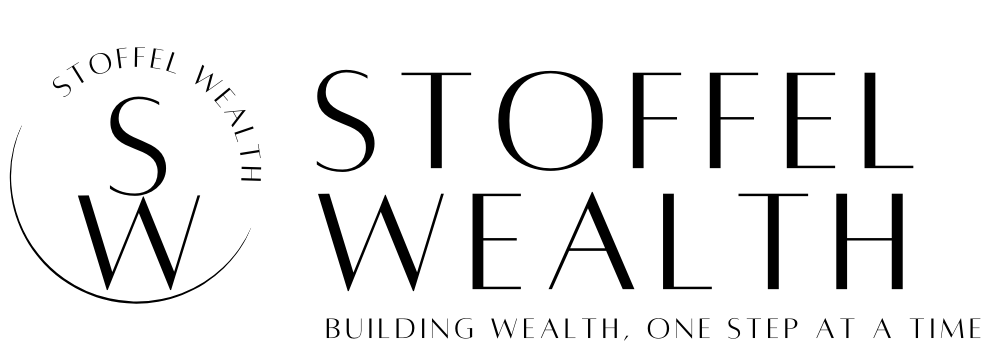Exploring the True Meaning of Wealth
When most people think of wealth, the first thing that comes to mind is money – being rich, having a large bank balance, owning properties, or being able to afford luxury goods. However, while being rich typically refers to one’s financial status, being wealthy encompasses far more than just monetary riches. Wealth includes a broader range of assets, not just in terms of material possessions but also the richness of life in non-monetary terms. At the end of the day, true wealth goes beyond the numbers in your bank account and considers a broader perspective on personal well-being, relationships, health, fulfilment, and stability.
Being Rich vs. Being Wealthy
Being rich primarily refers to the possession of substantial financial assets and income. Someone is considered rich when they have enough money to afford a luxurious lifestyle, expensive material goods, or the ability to spend freely without worrying about finances. “Rich” is often associated with the ability to buy what you want, when you want, without financial constraints. At what point you would consider yourself rich off course depends on your lifestyle requirements and obligations. Some people only need very little money to live their chosen lifestyle, others need lots and lots of it.
However, being rich doesn’t necessarily mean being wealthy in a holistic sense. I would go as far as saying that you can be wealthy without being rich. If you are unhappy and miserable today without having much money, you will still be unhappy and miserable tomorrow with lots of money. But at least you could be miserable in comfort.
Money gives you freedom to do what you want and amplifies who you already are. Its therefore crucial for us humans to not only focus on financial well-being but also other elements of wealth such as relationships or personal health.
Wealth, in its truest sense, is more comprehensive. While financial assets are certainly part of being wealthy, true wealth also includes other dimensions, such as freedom to live on your own terms, strong relationships, personal well-being, health, and life satisfaction. A wealthy individual is someone whose life is balanced in both material and non-material areas. Wealth provides a sense of security, fulfilment, and the ability to enjoy life in its totality, even if your financial status may fluctuate.
A person who is wealthy may not necessarily flaunt their financial riches, but they have a strong foundation – financially stable, emotionally fulfilled, mentally peaceful, and physically healthy. They have the resources to live life on their own terms, not just financially but in every other meaningful aspect.
Defining Wealth: A Holistic Perspective
True wealth is multifaceted, and it goes beyond just money. To truly understand what wealth is, it’s essential to look at its two main components: monetary and non-monetary elements.
Monetary Elements of Wealth
- Financial Assets: These include traditional indicators of wealth, such as income, investments, savings, property, and other tangible assets. Financial wealth provides stability, allows for future planning, and enables individuals to live without the constant pressure of financial insecurity.
- Investment Income: True financial wealth goes beyond just having a high income. It often involves creating sources of passive income (which is my favourite form of income), such as dividends from stocks, rental income from property, or interest from savings. This allows individuals to grow their wealth over time while reducing the need to actively work for every dollar earned.
- Financial Security and Freedom: Wealth includes not only having financial assets but also having the freedom to make life choices without being constrained by financial obligations. Financial freedom means having enough money saved and invested to meet your needs and desires without the constant need to earn more.
- Ownership and Equity: Owning real estate, businesses, or shares in companies can contribute to an individual’s wealth by increasing their net worth. These assets provide long-term value and often appreciate over time, building a foundation of financial stability.
While financial wealth is important, it is not the sole measure of a wealthy life. Individuals can be financially rich but lack other essential elements of wealth, leading to a life that feels empty or unfulfilled despite their riches.
Non-Monetary Elements of Wealth
- Time Freedom: One of the most overlooked but crucial aspects of wealth is the freedom of time. Having financial success but no time to enjoy it because of work obligations, stress, or lack of work-life balance can detract from the feeling of being wealthy. True wealth means having control over how you spend your time, allowing for travel, leisure, hobbies, and quality moments with loved ones.
- Health and Well-being: The old saying “Health is wealth” rings true here. Without physical health, even the most financially successful person may feel impoverished. Being wealthy includes taking care of your mental, emotional, and physical health. Wealth includes emotional resilience and mental well-being. Those who have learned to manage stress, practice gratitude, and develop inner peace are often wealthier in emotional terms than those who are financially rich but constantly stressed or anxious. A healthy body and mind enable you to enjoy life, pursue your passions, and maintain long-term stability.
- Strong Relationships: Wealth also includes the richness of human connections. This means having deep, fulfilling relationships with family, friends, and community. A life filled with meaningful relationships can provide emotional support, joy, and companionship, which are all invaluable forms of wealth. Social wealth is often a key determinant of life satisfaction and happiness.
- Personal Fulfilment and Purpose: A wealthy life is one filled with purpose and personal fulfilment. This can come from work that you find meaningful, creative expression, or pursuing your passions. Individuals who feel connected to a larger purpose, who experience growth, and who enjoy their daily activities are truly wealthy in life satisfaction.
- Freedom from Worry: A significant part of wealth is the absence of constant worry, whether about finances, health, or relationships. True wealth means living without the daily stress of survival or fear of financial ruin. It’s about being able to make decisions with a clear mind, not driven by fear or desperation.
The Balance Between Monetary and Non-Monetary Wealth
True wealth is a balance of both monetary and non-monetary elements. Financial success without health, meaningful relationships, or fulfilment can feel empty. Similarly, a rich life filled with purpose and strong relationships, but financial instability can cause stress and limit opportunities.
For example, if you earn $100,000 a year but you spend $120,000, then you are living beyond your means and may be constantly feeling in a financial trap. Despite having a high income, you are not wealthy because you lack financial security and freedom. And if you increase your lifestyle expenses every time you increase your income, you will always be trapped and never have enough money. I am very content with my current lifestyle, and I do not feel the need to spend more. Off course there are lots of things I would like but not that many I really need. If you are happy with your lifestyle, you can invest every dollar you make in additional income into your financial future.
My best friend from school is a good example of someone being wealthy but not financially rich. He still lives in our hometown, has a small paid-up house with his wife and three daughters. He has a decently paid job and only works 4 days a week, leaving him with plenty of time to spend with his family and other interests. He has chosen a lifestyle that makes him happy and allows to live his life on his own terms. Even though he would for example not be able to buy flight tickets for his family and have a vacation in an exotic location. Instead, they travel locally by car, and they accept this “limitation”. I would consider him to be far wealthier than the high earner living paycheck to paycheck.
Conclusion: Are You Wealthy?
Asking yourself, “Are you wealthy?” rather than simply “Are you rich?” forces you to take a more holistic view of your life. True wealth is not just about how much money you have in the bank or how many assets you own. It’s about the balance between financial security, time freedom, health, relationships, and overall life satisfaction.
Being rich can be fleeting, tied to income or assets that may fluctuate. For some it can even be a burden. But being wealthy encompasses a stable, well-rounded life where both financial and non-financial resources allow you to live fully, enjoy your time, and maintain well-being.
When assessing wealth, ask yourself:
- Do you have enough financial resources to meet your needs and desires comfortably?
- Do you have time freedom to pursue the things you love?
- Are you healthy and able to enjoy the life you’ve built?
- Are your relationships strong and meaningful?
- Do you feel a sense of purpose and fulfilment in your daily life?
If the answer is yes to most or all these questions, then you are truly wealthy. Wealth is not just a number; it’s a mindset and a holistic measure of life’s richness, both financially and beyond.
Picture a group of old people sitting together in a retirement home. What will they be talking about? How much money they have made? What career path they had? How many cars they owned? Or would they talk about personal relationships, their health, their children and grandchildren, taken and missed opportunities in life?

